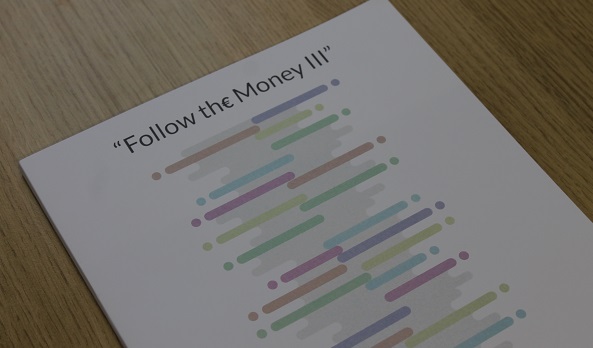The third ‘Follow the Money’ report maps and assesses the use of financial incentives (lump sums) allocated under the Asylum, Migration and Integration Fund (AMIF) to EU Member States (MS) participating in refugee resettlement and intra-EU relocation. The four case studies, France, Italy Portugal and Slovenia provide a range of national contexts and practices within the role and impact of EU funding is explored. The research draws on the first two ‘Follow the Money’ studies published by ECRE and UNHCR in 2017 and 2018 tracking the use of AMIF for asylum, integration and return.
Member States resettled 76,205 persons during 2014-18, via both EU schemes and national programmes with uneven participation among MS. The study finds that the funding under the lump sum modality, €6,000 per resettled person, increasing to €10,000 when the resettled person falls into one of the categories included under common Union resettlement priorities, is an effective mechanism to provide EU funding. The reduction or removal would most likely lead to reductions in resettlement numbers and/or programmes that offer less support to resettled persons.
Additionally, the AMIF provides funding support to the ‘establishment, development and implementation’ of national resettlement programmes. This funding stream is a flexible resource, supporting a broad range of national resettlement activities. Despite this flexibility, just twelve Member States have made use of it in their AMIF national programmes, allocating very modest amounts of funding relative to other national programme activities.
According to the European Commission, 34,705 persons were relocated by September 2018 , 21.6% of the planned 160,000; Member States reported a total of 37,595 persons relocated during 2014-18. As Member States were allowed to count legal admission (resettlement) under the EU-Turkey Statement against their relocation obligations, 20,574 persons were resettled from Turkey to the EU, and €133.7m of AMIF funding originally allocated for relocation from Greece was ‘cut off’.
€843m was allocated to AMIF national programmes to implement the two relocation decisions by the EC in 2015. To enable continued commitment after the end of 2018, an amendment to AMIF national programmes made it possible to reallocate unspent relocation funds: a minimum of 20% for solidarity measures, and a maximum of 80% for other AMIF actions, excluding detention. This meant Member States that were more successful in fulfilling their relocation commitments had less resources available for reallocation within their AMIF national programmes. Further, the Member States against which infringement proceedings are ongoing for non-compliance with relocation (Hungary, the Czech Republic and Poland) had the possibility to reallocate nearly all EU funding originally allocated. Just eight Member States made new, voluntary relocation commitments, pledging a total of 4345 places.
For further information:
- UNHCR/ECRE, “Follow the Money III” Solidarity: The use of AMIF funds to incentivise resettlement and relocation in the EU, March 2020
- ECRE Policy Note 18, Outspending on Migration, June 2019
- UNHCR/ECRE, “Follow the Money II” Assessing the use of EU Asylum, Migration and Integration Fund (AMIF) funding at the national level 2014-2018 (ENG), January 2019
- UNHCR and ECRE, “The Way Forward” – A reflection paper on the new proposal for EU funds on Asylum, Migration and Integration 2021-2027, October 2018
- UNHCR/ECRE, “Follow the Money” Assessing the use of EU Asylum, Migration and Integration Fund (AMIF) funding at the national level, January 2018
Photo: ECRE
This article appeared in the ECRE Weekly Bulletin . You can subscribe to the Weekly Bulletin here.

